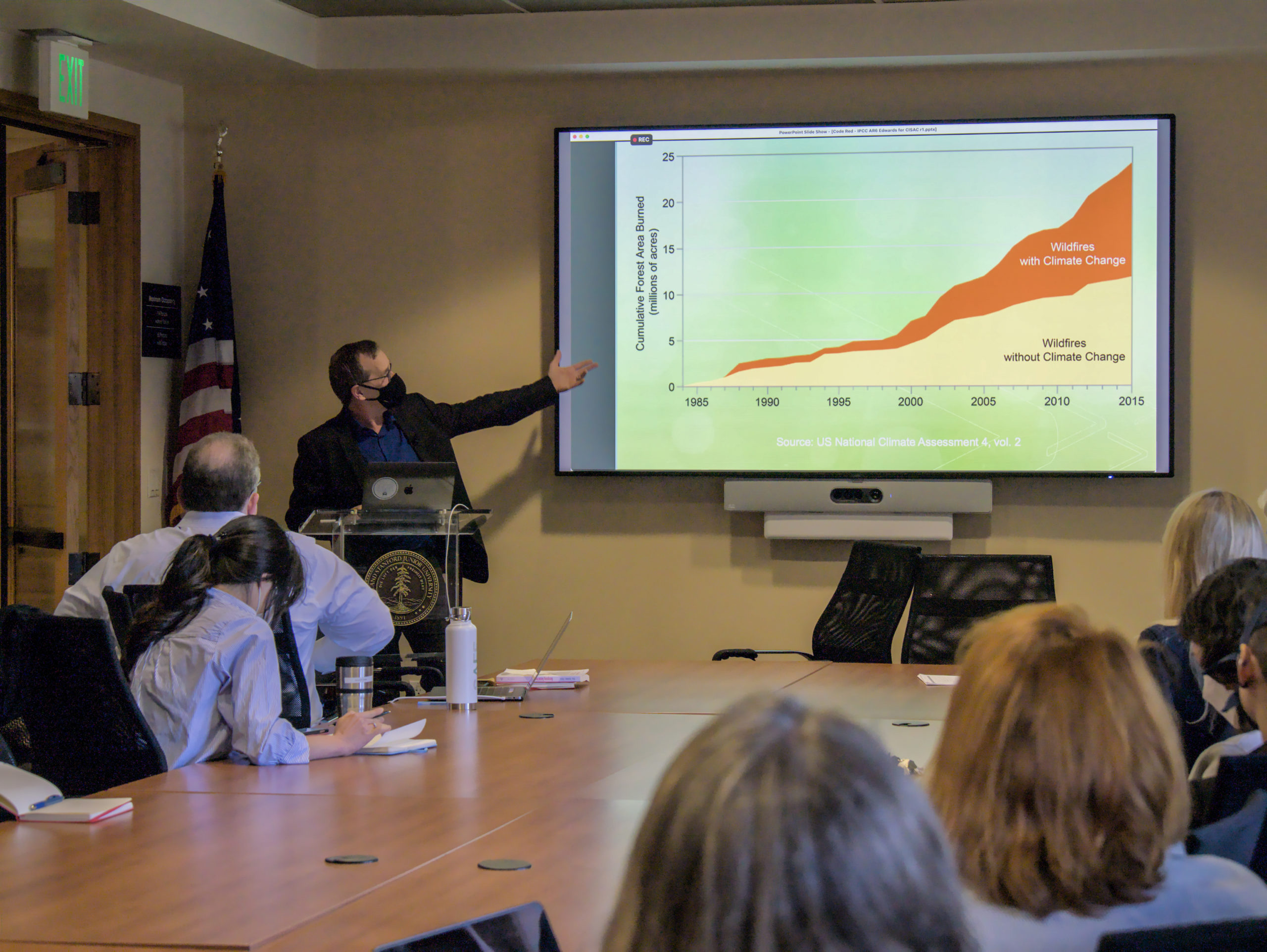Mankind faces an existential and imminent threat from human-caused climate change if rapid and significant measures are not taken, based on the latest report from the Intergovernmental Panel on Climate Change (IPCC).
Paul N. Edwards, who serves as the director of the University’s Science, Technology & Society program and was a lead author of the report, presented the report’s findings at an Oct. 12 Center for International Security and Cooperation (CISAC) seminar.
For Edwards, the IPCC’s conclusions were clear.
“Climate change is not the future — it’s well underway,” Edwards said. “We are seeing extremes of heat, drought and rain, all over the world. And those will continue to get more intense.”
In an interview with The Daily following his presentation, Edwards called on the University to divest from fossil fuels as a meaningful acknowledgement of the report’s predictions, which prompted the United Nations Secretary-General to call the climate crisis a “code red for humanity.”
As a U.S. citizen and Stanford employee, Edwards said he felt it was time for the University to divest from fossil fuels.
“We’ve been around and around on this, and now Harvard has done it, MIT has done it, Dartmouth has done it,” Edwards said. “Ten out of the top 20 research universities have already divested — why are we sitting on our hands?”
The IPCC’s report is the result of three years of work by 234 lead authors who reviewed 14,000 scientific publications. The report, and its conclusion that human-caused climate change is rapidly accelerating and likely irreversible, was endorsed by all 195 of the IPCC’s member countries. According to the report, worsening climate change will be impossible to correct for at least the next three decades.
Even if humans were to halt all fossil fuel emissions today, the carbon dioxide that is already in the atmosphere will continue to insulate the Earth for decades or even centuries to come, Edwards said. As a result, global warming will continue, sea levels will rise and extreme weather events will become more frequent and intense, he said.
For California in particular, a year with heavy rainfall would help mitigate the effects of climate change, but this scenario is unlikely, Edwards said.
“More drought, more wildfires, there’s a near certainty of that,” he added.
The IPCC report was published in advance of the 26th United Nations Framework Convention on Climate Change in November 2021. According to Edwards, this grim verdict isn’t new to scientists or policymakers.
“Most of what is in this report, I don’t think will have a lot of influence on that meeting because most of that meeting’s outcomes were already being worked on before we released it,” Edwards said.
The report contained recommendations to help people and institutions be more sustainable. For institutions, Edwards recommended insulating buildings, installing solar panels and reducing energy usage.
While Edwards acknowledged that the impact a single person can have by reducing their carbon footprint is minimal, he said everyone plays an important role in responding to climate change. For example, Edwards suggested people could avoid gas powered cars or air travel and reduce the amount of meat they consume.
“The main thing is to understand where your carbon footprint comes from and minimize it,” he said.
